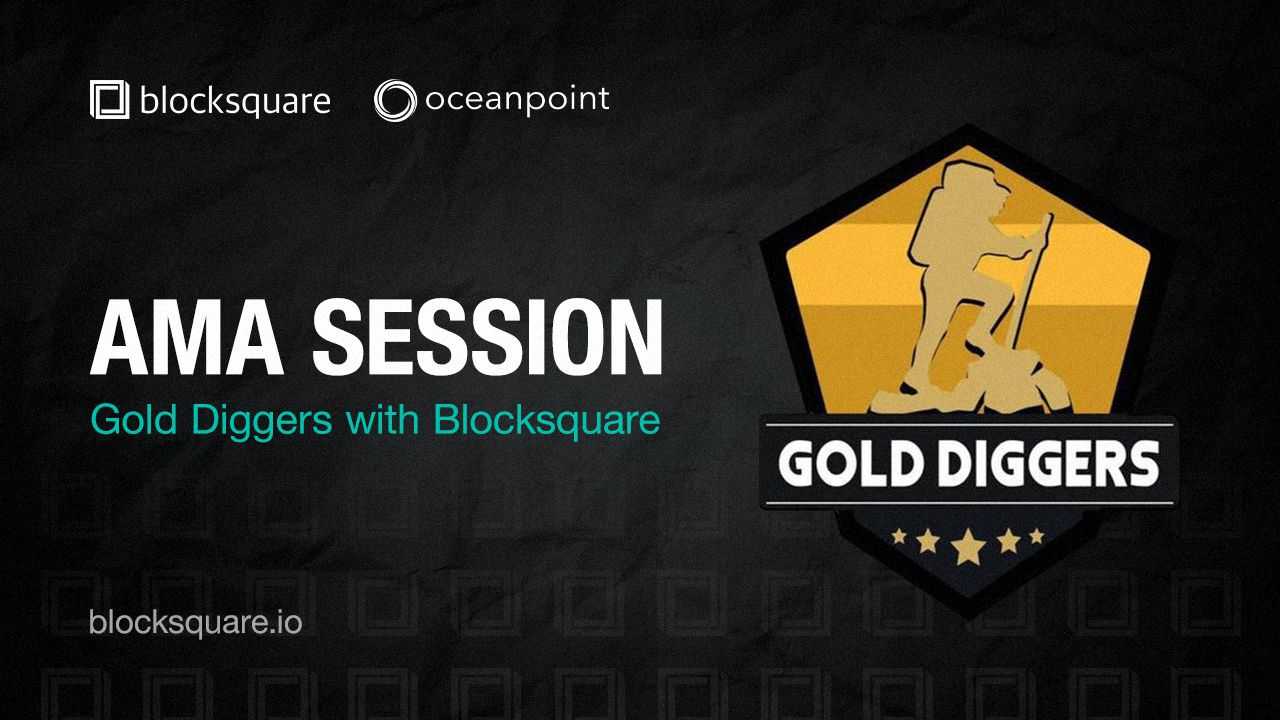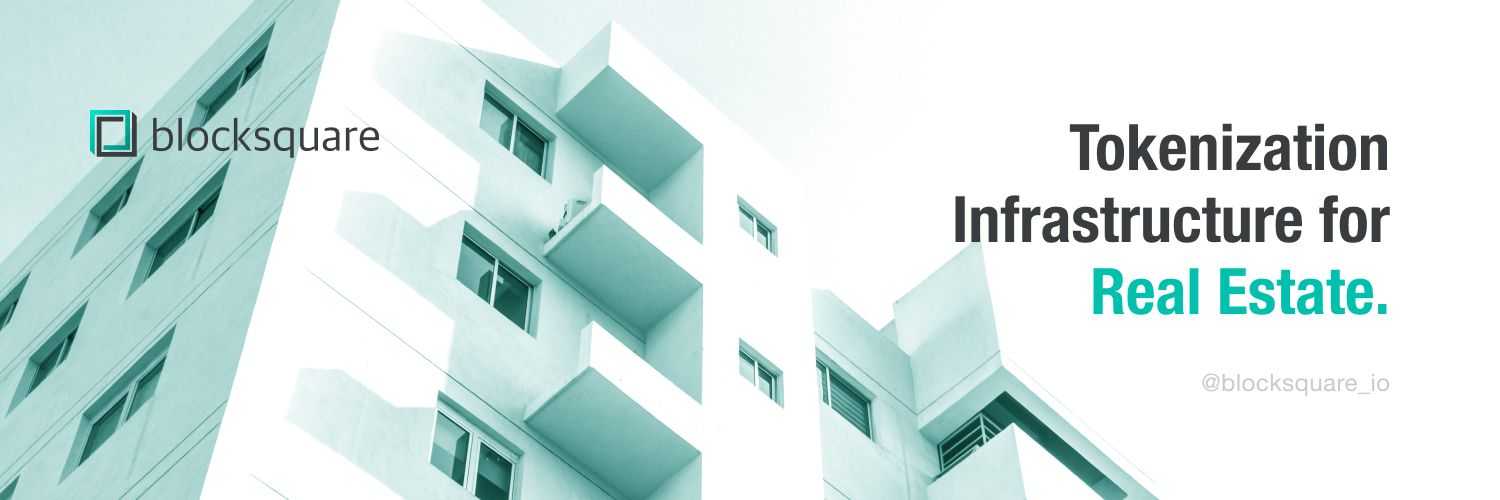Telegram AMA with Gold Diggers Community - Written Interview with Denis Petrovcic
Recently, Blocksquare CEO Denis Petrovcic joined the invitation by Gold Diggers Community, and answered some questions regarding real estate tokenization, BST and Oceanpoint. Here's the written recap.


Host (Moonshine): Hi everyone! My name is Moonshine, and I’ll be hosting today’s AMA with Blocksquare. We’re excited to have Denis Petrovcic, the CEO of Blocksquare, with us today. Before we dive into discussing your project, Denis, could you please introduce yourself and maybe share a bit about the other team members involved in the Blocksquare project?
Denis: Sure, Moonshine, and thanks to the Gold Diggers community for inviting me. As you mentioned, I’m Denis, the CEO of Blocksquare. We officially launched Blocksquare in 2017, and we’ve built an infrastructure that can tokenize real estate assets and make them investable for anyone with an internet connection.
Moonshine: That’s amazing! How many people are on your team, and where are they from?
Denis: Our team is currently about 40 people and spread across different regions. We have team members in Europe, Australia, the Middle East, and the US. We’ve truly grown into a global and distributed team.
Moonshine: Awesome. Could you walk us through Blocksquare's ecosystem? From what I’ve seen, you have four main branches—tech, products, business, and legal/sales. Can you briefly explain how these different parts work together?
Denis: Sure. Blocksquare provides infrastructure for tokenizing real estate assets. We’ve developed a tokenization protocol based on Ethereum and built a platform for marketplace operators. This allows them to launch their own online shops where they can list tokenized real estate assets. One of our key products is the liquidity engine, Oceanpoint, which integrates tokenized assets with DeFi liquidity. Through this, token holders can earn returns by staking our token, BST, or by purchasing real estate-backed tokens.
Moonshine: Great overview. Now, speaking about the tokenization protocol—what are the steps to link real estate properties and their revenues to the smart contracts, which you call "prop tokens"?
Denis: Good question. We’ve developed a legal framework to transfer economic rights from real estate assets owned by companies, such as LLCs, onto tokens. Essentially, we bundle the economic rights—like rent or resale profits—into a legal document called a corporate resolution. This document is linked to a smart contract on the blockchain, and the tokens represent a portion of the property’s economic rights.
Moonshine: That’s interesting. But what happens in cases where an issuer stops payments due to unforeseen circumstances? How does the corporate resolution protect investors, and is there a timeframe for appealing or resolving the issue before legal action is taken?
Denis: Litigation is something we try to avoid since it's time-consuming and expensive. However, our notarization process ensures that the token holders can directly execute their rights without needing to go through litigation. It’s structured similarly to how banks place mortgages on properties, allowing direct court execution in favor of the token holders in case of default.
Moonshine: That sounds efficient. What about in regions where cryptocurrencies aren’t allowed? Can the corporate resolution still be enforced in those jurisdictions?
Denis: It depends on how the government enforces crypto bans. In most cases, though, the corporate resolution is accepted globally, as it’s a common legal instrument. The blockchain component, which serves as a tamper-proof way to track ownership, is just one part of the process. We’ve tokenized assets in over 20 countries, so we have a good understanding of how to operate in different legal environments.
Moonshine: You’ve clearly thought through the potential challenges, which is impressive. Let’s talk about your valuation model. Real estate properties have various ways of being valued. How does your tokenization model affect property valuations?
Denis: Tokenization can bring a new type of valuation model. As more real estate properties become tokenized and traded, every transaction will create a price point, which can be used for valuation models. This could result in a more crowd-sourced valuation approach, where multiple trades provide a clearer picture of a property’s value.
Moonshine: That’s a unique approach. I also wanted to touch on price manipulation—something common in many markets. How do you ensure that price manipulation is minimized in your ecosystem?
Denis: Price manipulation is a risk, but we rely on net asset value (NAV) as a solid foundation. NAV reflects the real-world value of the asset. Additionally, revenue distributions from cash-flow-generating properties provide another layer of protection, as the return on investment is based on actual performance.
Moonshine: Since we’re talking about tokens, could you explain how Blocksquare’s tokens work, particularly the BSPT and BST tokens?
Denis: We’ve created two tokens. The BSPT, or Blocksquare Property Token, represents individual real estate assets. Each property has its own BSPT, with a total supply of 100,000 tokens, where 1,000 tokens represent 1% of the economic rights. On the other hand, the BST token is a utility token for our ecosystem. It has a fixed supply of 100 million tokens and is used in Oceanpoint to incentivize liquidity and boost returns.
Moonshine: Speaking of Oceanpoint, how does it serve as the central liquidity engine, and how does it differ from typical decentralized exchanges (DEXs)?
Denis: Oceanpoint is designed to bring liquidity to real estate tokens in a decentralized way. Unlike traditional DEXs where you can instantly trade, real estate tokens require a KYC process. Oceanpoint bridges this gap, allowing token holders to liquidate their assets quickly by interacting with liquidity pools. We’re currently working towards having enough tokenized assets to support the full version of Oceanpoint.
Moonshine: That’s great. So with Oceanpoint as the central piece of liquidity, can anyone participate in it, even without legal restrictions?
Denis: Yes, anyone can participate as long as they meet KYC requirements. Oceanpoint is designed to ensure liquidity while complying with regulations around real estate tokenization.
Moonshine: You’ve shared so much valuable insight today, Denis. I know we’re running out of time, but are there any final thoughts you’d like to leave us with?
Denis: Thanks again for having me! I’d like to mention a couple of things. First, Blocksquare is community-driven, and we invite people to join us by becoming regional ambassadors or launching their own tokenization marketplaces. We’ve made it affordable to start, and there’s a lot of support available. Second, I encourage anyone interested in the future of real estate tokenization to connect with us—we’re always open to collaborating!
Moonshine: Thank you, Denis, for an informative session! It’s been a pleasure learning about Blocksquare, and we hope to have you back for another AMA soon.
